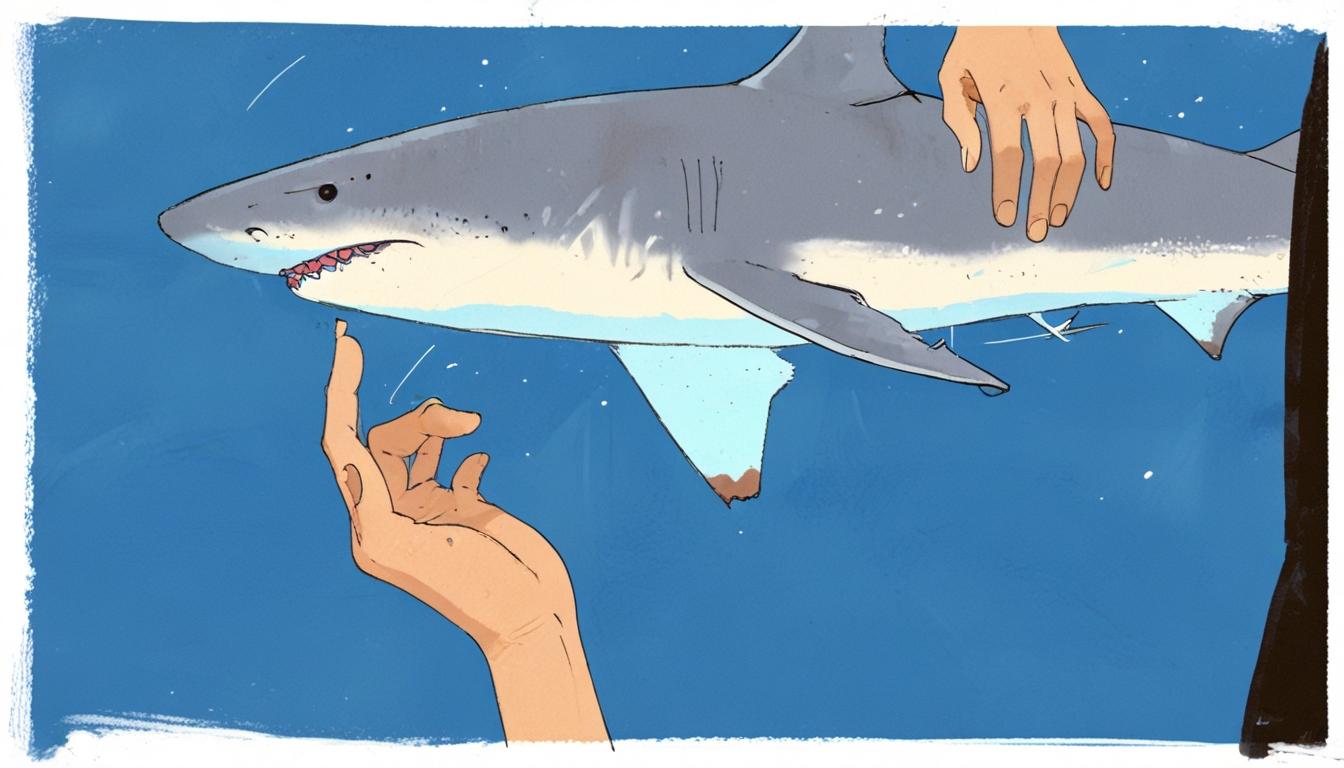A recent study has linked a rise in shark attacks to social media influencers encouraging risky interactions with these marine predators. The research, published in the journal Frontiers in Conservation, focused on shark encounters in the waters around French Polynesia and reviewed global data on shark attacks dating back to the 1800s.
The study found that out of 74 recorded shark bites in French Polynesia, five per cent were defensive in nature—occurring immediately after a human interaction perceived by the shark as threatening. Expanding the scope, researchers analysed the Shark Attack Files, a comprehensive global database, identifying over 300 similar incidents characterised by defensive responses from sharks.
Professor Eric Clua of PSL University in France, who led the research, attributed these defensive incidents to social media behaviour. He criticised influencers who promote activities such as clinging to a shark's dorsal fin or stroking the animals, often under the guise of demonstrating that sharks are harmless and advocating for their conservation. Speaking to The Times, Professor Clua remarked, “People know the difference between a [Yorkshire terrier] and a pit bull, whereas they don’t know the difference between a blacktip reef shark and a bull shark, which are their marine equivalents.”
The professor pointed out a discrepancy in public perception, noting that sharks cause fewer than ten human deaths globally each year, while dogs are responsible for over 10,000 deaths but tend to be perceived positively. This suggests a significant perception bias against sharks, despite their relatively low risk to humans.
Several celebrities have contributed to the trend by sharing videos online of themselves interacting closely with sharks. These include actor Zac Efron, singer Ciara, and actor Bella Thorne. Notably, some viral footage shows divers touching tiger sharks—apex predators that can reach over five metres in length. Social media influencer Taylor Cunningham frequently posts clips of herself swimming with and stroking sharks, while conservationist Ocean Ramsay has emphasised their enjoyment in sharing such rare moments of physical connection with the animals.
The research underlines that while sharks have historically been feared, many attacks occur when sharks feel threatened or provoked by human actions. Professor Clua advised swimmers who encounter sharks to refrain from touching them, stating: “Just look at it. Enjoy its beauty, but remember they are wild animals, predators that can act as predators. It is not only a matter of safety but also of respect.”
This study highlights the influence of social media in shaping human behaviour around wildlife and raises questions about how best to balance conservation efforts with public safety and animal welfare.
Source: Noah Wire Services
